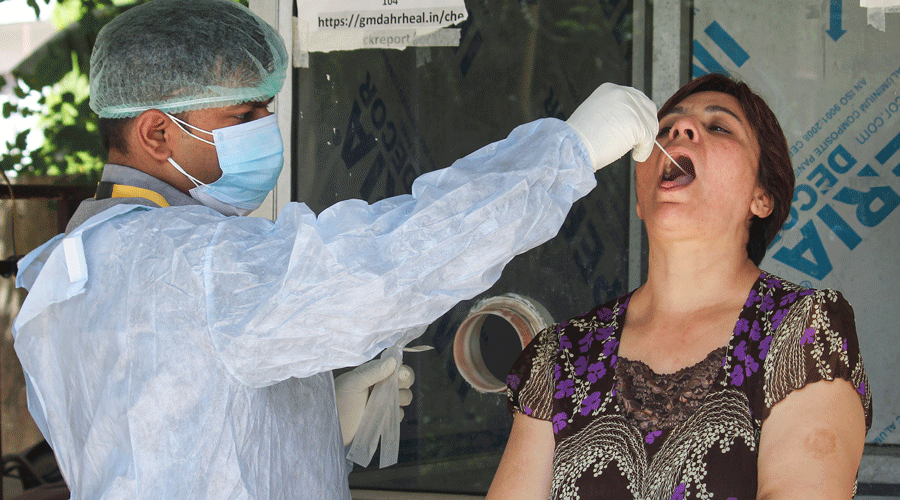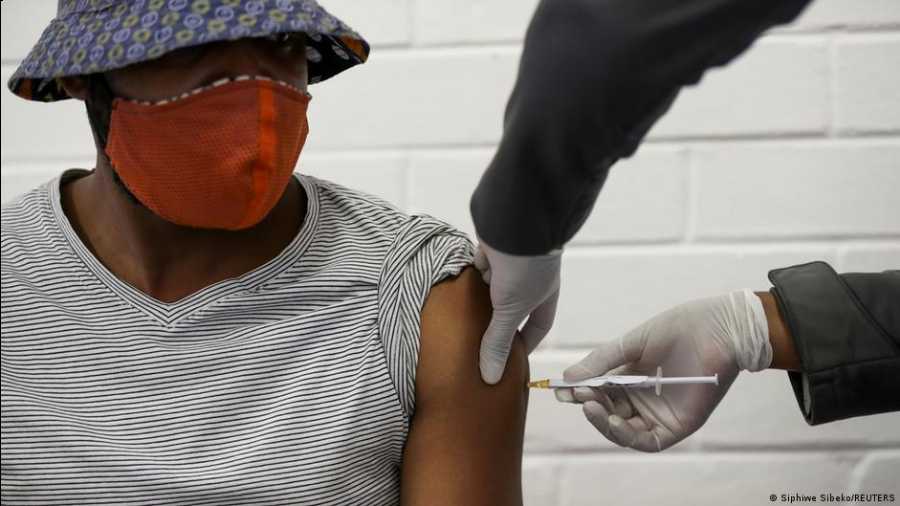India on Monday documented a 90 per cent rise in daily new Covid-19 cases, attributed to a four-day reporting blackout by Kerala, but daily cases have increased in some states that experts say are linked to crowds and mask-less interactions.
The Union health ministry on Monday recorded 2,183 new cases nationwide over the past 24 hours, a 90 per cent increase over the 1,150 cases on Sunday, but Kerala accounted for 940 cases after reporting zero cases and deaths on April 14, 15, 16 and 17. Among the 214 deaths documented on Monday over the previous 24 hours, Kerala accounted for 213 after reporting no deaths from April 14 to 17.
The health ministry, flagging concerns about the four-day gap, has asked Kerala to continue reporting Covid-19 data daily. The gap has “skewed the status” of India’s key epidemic monitoring indicators such as cases and deaths, Lav Agarwal, a joint secretary in the ministry, wrote in a note sent on Monday to Dr Rajan Khobragade, principal health secretary of Kerala.
“Daily and diligent reporting of Covid-19 data is critical to arrive at a meaningful understanding of the pandemic in districts, state or national level and ensure that any anomalies, surge, or emerging trends can be captured in a timely manner,” Agarwal wrote.
Dr Khobragade, however, told The Telegraph the state was “sending reports” to the Central Surveillance Unit of the National Centre for Disease Control, a health ministry institution, “as per the format they have asked.”
“At the CSU, they should do the rest of the follow-ups,” he said, replying to a query on whether Kerala had held back Covid-19 data for four days.
While Kerala’s counts explain Monday’s spike, the seven-day averages of daily new cases have increased 1.8-fold to 3-fold in Delhi, Gujarat, Haryana, and Uttar Pradesh since April 1. In Delhi, for instance, the seven-day average increased to 330 on Sunday from 131 on April 1.
Experts say there is no evidence yet to link the increases in any state to anything other than the ease of Covid-linked precautions, crowding in public places, and mask-less interactions, although concerns about the possibility of new variants emerging persist.
A nationwide lab network, sequencing coronavirus genomes to look out for links between variants and increase in infections, has not linked the current rise in cases in any state to any specific variant, a top official coordinating the effort said.
The sequencing effort had last month detected two cases of the XE variant, a recombinant of two versions of the omicron variant that had driven the country’s third wave in January this year. Asked whether the current rise was linked to either XE or any other variant, the official said: “It is not clear yet.”
Some scientists are concerned that sequencing has slowed down, which could hurt attempts at early detection of the variants that might be driving the current rise in cases. The states are expected to send samples for sequencing to assigned labs in the network.
But experts also say that India’s three large Covid-19 waves and its high vaccination coverage have generated immune responses that are likely to continue protecting people from severe disease.
“Overall, I think the Indian population is in a comfortable position through natural immunity from infections and acquired immunity from vaccines,” said Krishanpal Karmodiya, a molecular biologist at the Indian Institute of Science Education and Research, Pune, one of the sequencing labs.
“But we need to be vigilant — intensive sequencing should continue, especially so in the states that are reporting increases in cases,” said Karmodiya.












